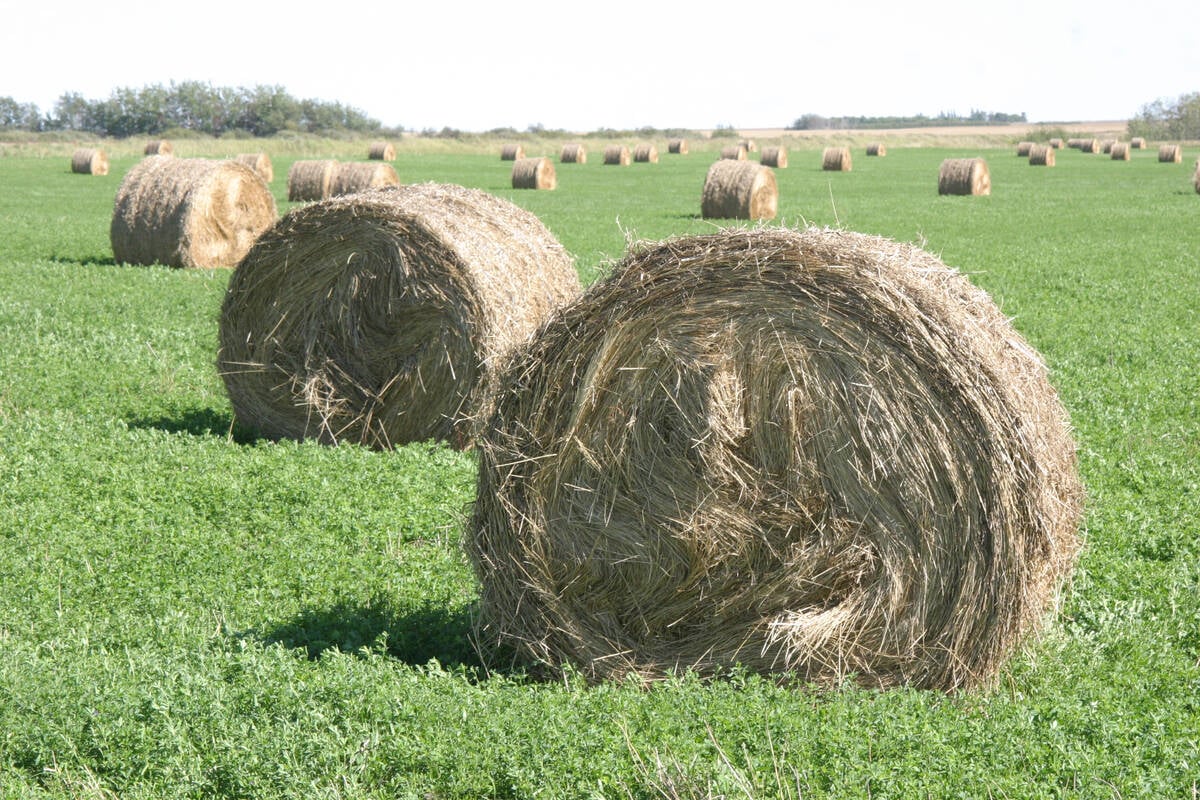RED DEER – The lamb industry wants Canadians to know that it too is reeling from market meltdown due to bovine spongiform encephalopathy.
Lamb producers travelled to Washington, D.C., in September to convince Americans their product is safe and should be allowed back into the United States.
They reminded the Americans that Canada has had a feed ban in place since 1997 and typically sheep never received meat and bone meal rations, said Randy Eros, president of the Canadian Sheep Federation.
The American Sheep Industry Association supports Canada’s position and agrees the animals and meat should be allowed back, Eros said.
Read Also

Breaking down successful winter feeding into six steps
It’s that time of year when it is important to start planning for a cow herd’s winter feeding program. Here are six steps I think are necessary to consider when getting your feed tested.
The sheep federation plans to respond to the U.S. department of agriculture proposal for reinstating livestock trade for young animals.
The marketing group, Ovigene Canada, is keen to restore trade for animals of all ages, said breeder Ian Clark of Bentley, Alta.
He raises four purebred types and has struggled since May 20 to regain markets. It is possible to ship semen and embryos but many buyers prefer to see live animals.
Working with two partners, they have suffered serious financial losses.
“In three years we had grossed $1.175 million,” said Clark.
The group consists of OC Flock Management, a genetics collection company owned by Ileana Wenger and Dan Sinclair of Bowden and the export firm, Polar Genetics in Edmonton.
Breeders like Clark have been forced to curtail purchases of new genetic stock to improve their own herds because they have been shut out of international trade and subsequently have lost income.
They had made inroads to South America and Mexico. Early next year, Clark and Wenger have planned several trips south to meet potential customers and negotiate the return of fresh Canadian sheep genetics.
Their comeback is likely to be through a vial containing frozen embryos and semen, rather than live animals.
“That’s the way it should be. We shouldn’t be shipping live animals,” Clark said.
Mexico is interested in buying Canadian genetics again. However, it must tread carefully and not annoy the Americans who may threaten trade retaliation on other fronts if Mexico accepts Canadian livestock.
“The Mexicans may be able to negotiate something with the U.S. for transshipment of breeding stock through the U.S,” said Clark.















